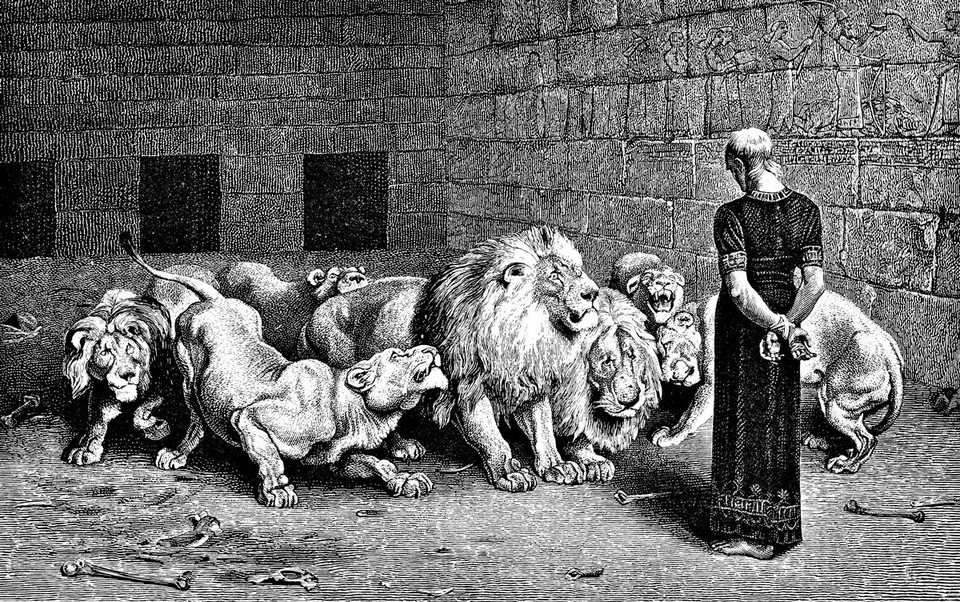How Does the Book of Daniel Reflect Modern Problems?

Often, the church can forget about the Old Testament. Beyond Sunday school, many lessons such as Daniel in the Lions’ Den (Daniel 6) and the Fiery Furnace (Daniel 3) often fade into obscurity in sermons, online Christian articles, and Christian living books.
But, these passages in the Old and New Testament have strong bearings on our day-to-day life.
Daniel, a teenage prophet kidnapped from his homeland and forced into a pagan culture, has a great deal to say for our day and age, even though he walked the earth more than 2,500 years ago. Daniel has brought the following lessons to teach us about the world we live in:
We live in a modern Babylon
The Book of Revelation makes it clear that Babylon plays an important role in the end times, which we seem to be rapidly approaching (Revelation 17). Babylon indulged in every sin imaginable, praised other gods, and tried to squelch the religion of God’s people after they took them captive. Like the first Babylon, the one talked about in Revelation will meet a violent and abrupt end (Revelation 18).
America glorifies every idol imaginable. Our country has taught itself that greed is good, we deserve sex with no marital attachments, and we need power to satisfy our inner thirst for God.
Our culture encourages us to indulge in every pleasure and extravagance possible. Those who resist or avoid following these norms will, like Daniel and his friends, face derision, persecution, and possible death.
Our education systems face similar issues
If any Christian has kids, they have to face the age-old question. Do I send my kid to a public school, can I afford a private Christian school, or should I just homeschool? I’ve known parents who had great convictions for all three options. But we’ve entered a period where our children, whether in high school, college, or post-grad life, could have instructors who teach them materials that are anti-Christian in nature.
Daniel encountered a similar education. For three years, he had to learn not only the Babylonian language, but he would’ve likely learned subjects such as astrology and all about Babylonian religion. Those would have countered his strong, Jewish heritage.
Nebuchadnezzar, Darius, and other rulers will try to wipe Christians out
We encounter a common theme in the first six chapters of Daniel.
Chapter One: Eat the King’s food or die (Daniel 1).
Chapter Two: Interpret the King’s dream or die (Daniel 2).
Chapter Three: Bow to the King’s idol or die (Daniel 3).
Chapter Six: Don’t pray to your God. If you do, you die (Daniel 6).
Those in power sometimes use intimidation tactics and death threats to coerce Christians to abdicating their morals and to follow the status quo. Although most American Christians do not face death for their beliefs, the worldwide epidemic of Christian persecution is on the rise.
Powers and authorities will try to keep us from spreading the Gospel and from disrupting the status quo via any means possible.
Christians around us will cave (and already have) to societal pressures
I think we often forget one part of the story in Daniel 3. Shadrach, Meshach, and Abednego (Daniel’s friends) stoodalone when faced with the test to bow to the king’s statue or perish.
Nebuchadnezzar didn’t just kidnap three Israelites. Hundreds, thousands of Israelites made a choice on that day to cave and bow to the king’s idol. These Israelites would’ve had the first five books of the Bible memorized in their youth. They would know the Ten Commandments by heart, including the very first of the commandments “thou shalt not have any gods before me” (Exodus 20:3). They knew better, but they succumbed to pressure and fear instead of trusting in God.
We’ve reached a point in our culture where we can’t be covert Christians.
Our ideals do not match those of our society, and when questioned about them or having to act on them, we have to make a choice. We can bow to Nebuchadnezzar’s idol and avoid a societal or (perhaps) physical death. Or, if we cave, we run the risk of facing a death of far greater proportions.
Like Daniel, we need to stand strong in our beliefs and trust in God
Daniel tackled death head-on.
He knew when he refused to eat the King’s food that he could possibly face death, but he trusted in God and held strong to his Israelite identity. He would not let the king’s food defile him.
Do we do the same? Do we avoid activities and words that could defile us or that try to wipe out our identity as God’s children? Or, do we stand strong in our convictions, even when we might lose respect, friends, and potentially our lives?
I think it often boils down to how much we trust in God.
One thing that strikes me is Shadrach, Meshach, and Abednego’s faith when faced with a fiery furnace death. They believed God would rescue them from that terrible demise. But even if he didn’t, they wouldn’t cave.
Often, I wonder if I could tackle such dire straits with such faith. If America put a ban on prayer, could I pray as fervently as Daniel did? If a boss at work threatens to lay off workers because of something uncontrollable (Daniel 2), will I trust God even when faced with lions’ dens and fiery furnaces?
Photo credit: Getty/CatLane
Originally published June 19, 2019.





